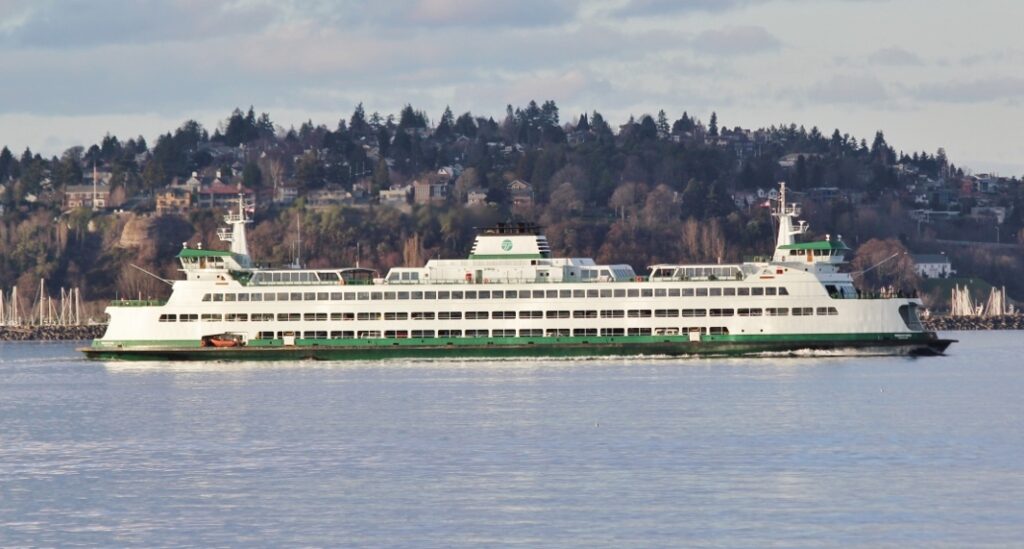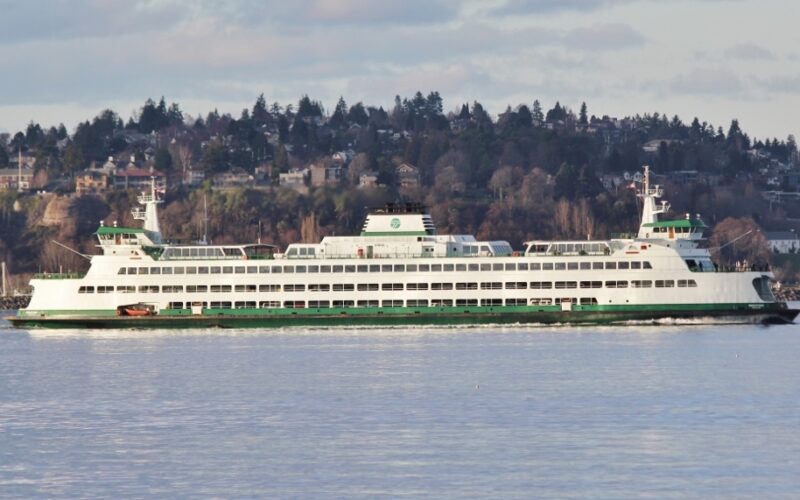(SEATTLE) — Washington State Ferries (WSF) is celebrating a major milestone on its journey to zero emissions by 2050, awarding its first shipyard contract to Vigor for the conversion of up to three Jumbo Mark II-class ferries to hybrid-electric power.
While converting WSF’s largest ferries to hybrid-electric power, Vigor will also update aging propulsion system controls to extend the life expectancy of these vessels.
Following a competitive process among Washington shipbuilders, Vigor’s winning bid was just over $150 million. The second bid came in at approximately $166 million. The state’s estimate was approximately $120 million. This contract is for conversion of two vessels at approximately $100 million with a fixed-price option to convert the third vessel in 2025.
WSF is the largest ferry system in the United States and the biggest contributor of greenhouse gas emissions among Washington state agencies, burning 19 million gallons of diesel fuel to support tens of millions of passengers every year. This shift to hybrid-electric ferries comes in response to direction from Gov. Jay Inslee and the Washington Legislature, and aligns with WSF’s Long Range Plan.
“This contract is a big step toward providing our ferry-served communities with better air quality and more sustainable service,” said Matt von Ruden, system electrification program administrator. “We’re tackling the biggest emitters in our fleet first, the Jumbo Mark IIs, which contribute 26 percent of our ferries’ greenhouse gas emissions. When our terminals are electrified in 2026, we expect emissions from these three vessels to drop by roughly 95 percent.”
In addition to the hybrid-electric conversion, the contract includes planned replacement of the propulsion control systems. The three vessels are experiencing equipment failures and replacement parts are often unavailable. This effort will increase reliability and ensure the Jumbo Mark IIs are available for decades to come.
In September, Vigor will start work on the ferry Wenatchee at its Harbor Island shipyard in Seattle. The vessel is expected to re-enter service on the Seattle/Bainbridge route next summer. Vigor will then begin converting Tacoma in 2024. WSF has the option to extend the contract to convert a third boat, Puyallup, in 2025.

“Vigor and our skilled employees are proud to be continuing our strong partnership with Washington State Ferries,” said Adam Beck, Vigor executive vice president of ship repair. “Our long history with WSF makes Vigor the best place to help propel our ferry system into a low-emission, sustainable future which supports family-wage jobs all across Puget Sound. We look forward to getting to work and getting these ferries back in service for the thousands of Puget Sound residents who rely on them.”
Conversion of the state’s largest ferries to hybrid-electric power marks WSF’s first step toward electrification of the ferry system. This innovative initiative drastically reduces greenhouse gas emissions and prepares Washington for a changing climate. The program will:
• Retrofit six current diesel ferries to hybrid electric.
• Build 16 new hybrid vessels.
• Retire 13 diesel ferries.
• Add charging power to 16 terminals.
While WSF is one of the first and largest ferry systems in the U.S. to electrify ferries, ferry operators throughout northern Europe have converted more than 70 ferries to hybrid-electric power since 2015.
This is the largest conversion contract in WSF’s $3.98 billion electrification program. Over the next 17 years, WSF will spend $3.7 billion to electrify or build new ferries and $280 million on terminals.
– Washington State Ferries

